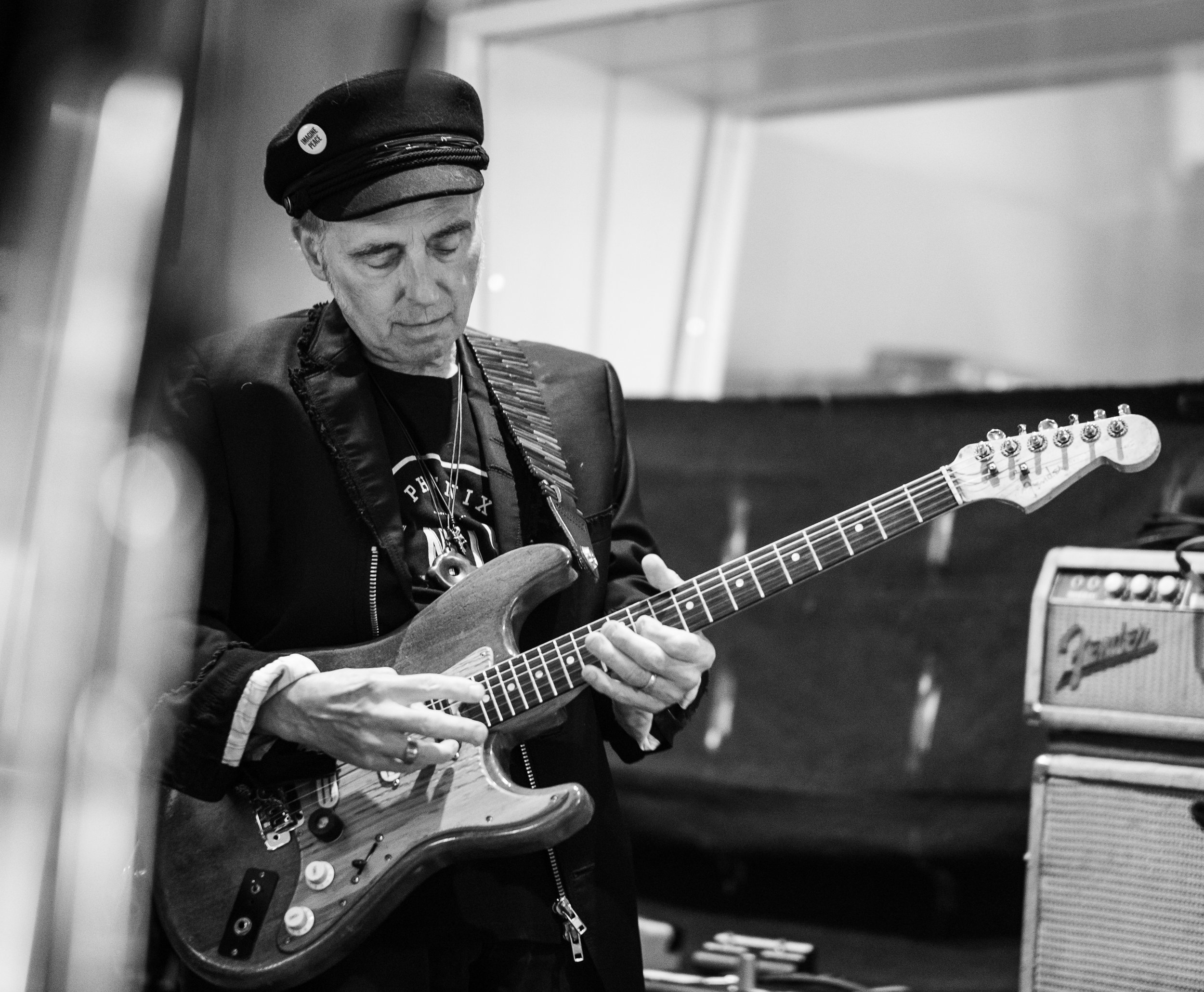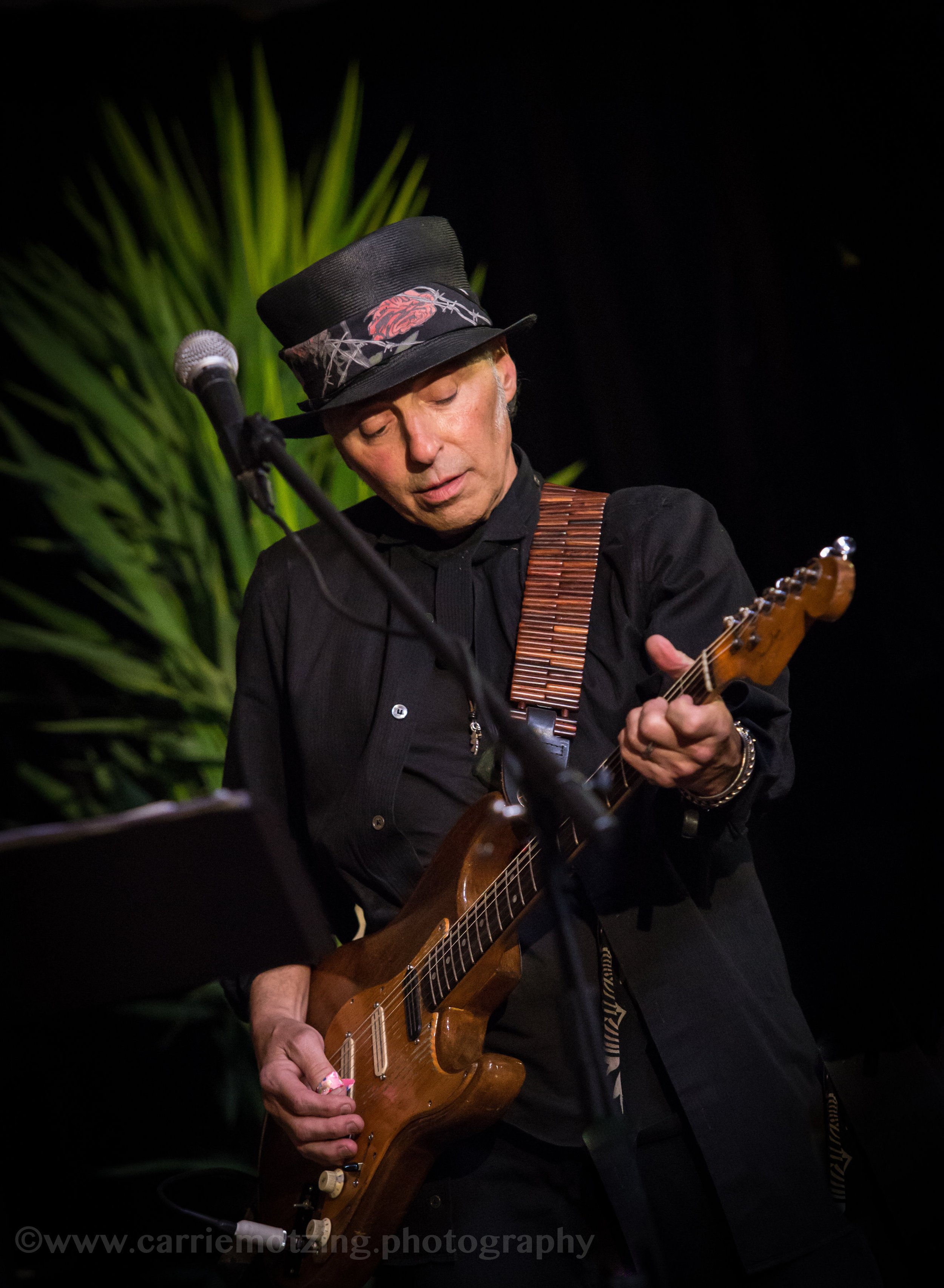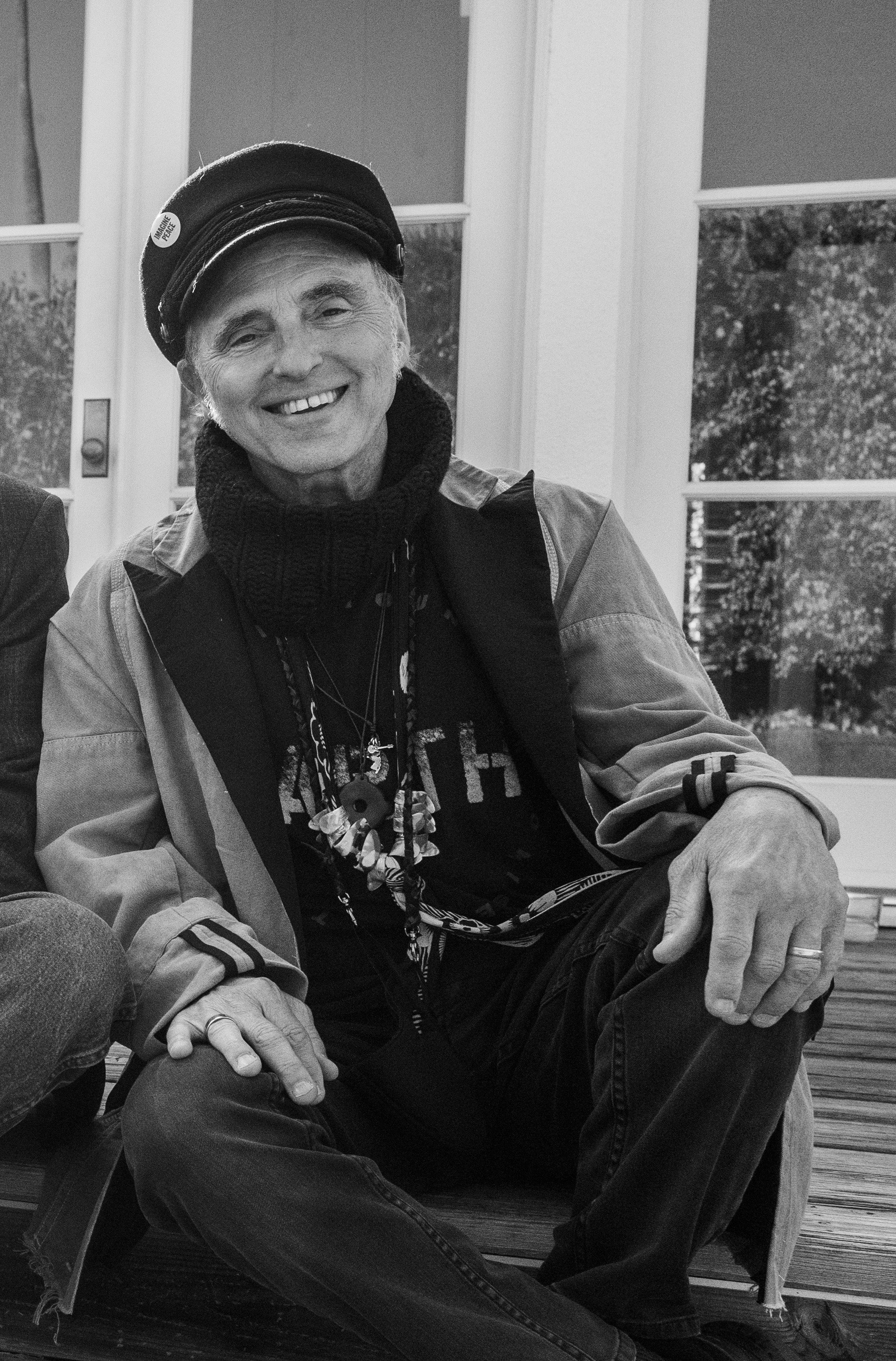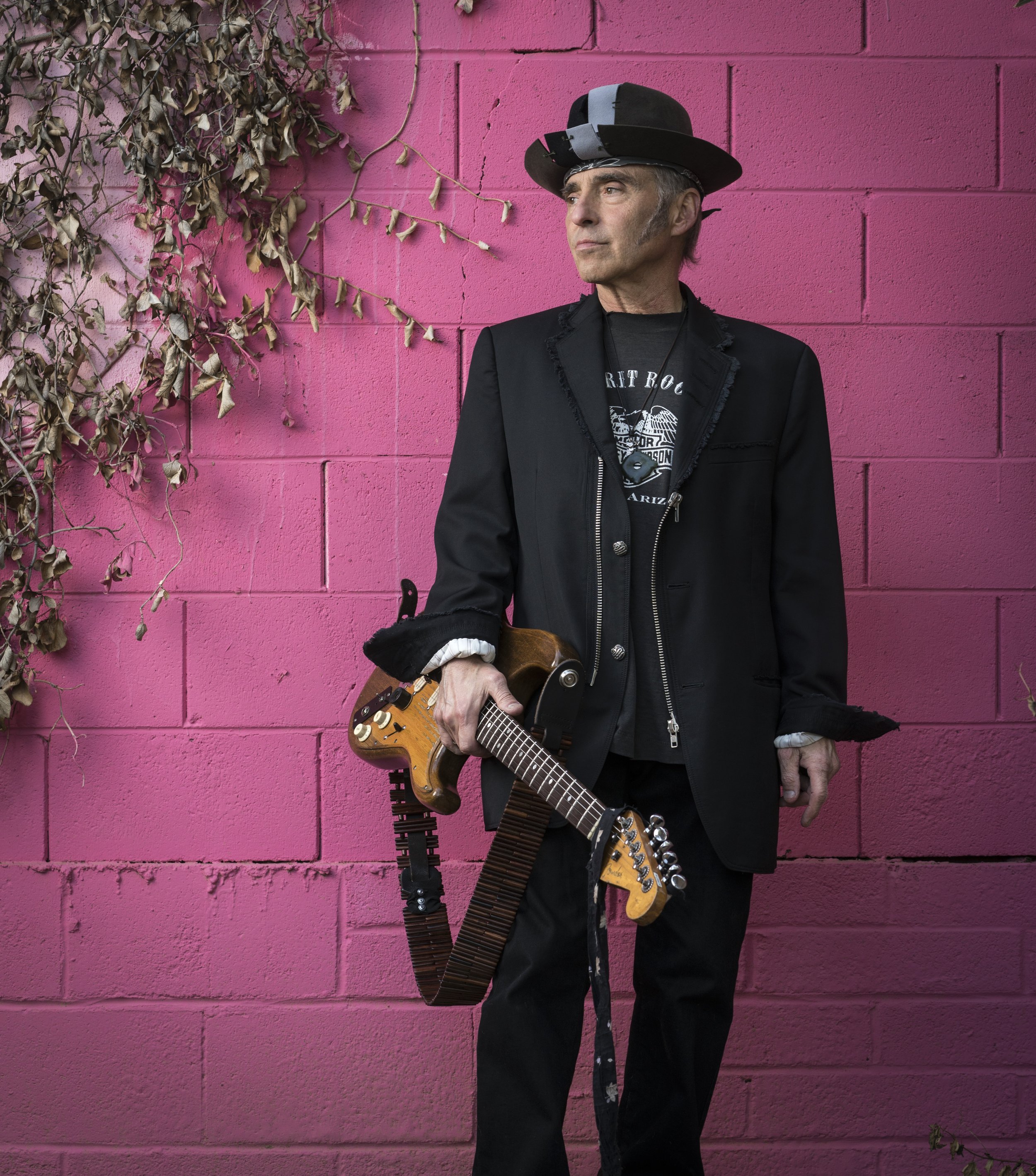Click Image to Download!
“These songs are all born of raw emotion,” says Rock and Roll Hall of Famer Nils Lofgren. “I gave myself permission to share my fear and my anger, my love and my hope, to be open about what I was experiencing without overanalyzing or editing the life out of it. I gave myself permission to be honest.”
That emotional honesty is the bedrock of Lofgren’s extraordinary new solo album, Mountains. Written and recorded at home in Scottsdale, AZ, the collection is lush and soulful, mixing rock and roll muscle with blues grit and gospel transcendence as it grapples with a world where pride and selfishness are treated as virtues and the power-hungry are rewarded for their greed and shortsightedness. Rather than respond with despair, though, Lofgren insists on resilience here, reaffirming his faith in the redemptive power of love and art to help us rise above our circumstances and find the kind of purpose and meaning that make life worth living. The result is perhaps the most vulnerable and revealing work in Lofgren’s impressive 50-year catalog, an intuitive, empathetic reflection on truth, trust, and the power of human connection delivered with the help of an all-star cast of friends including Ringo Starr, Neil Young, Cindy Mizelle, the Howard Gospel Choir, and the late David Crosby.
“I grew up living through the Vietnam War, the Cuban Missile Crisis, and the Kennedy and King assassinations,” Lofgren reflects. “I thought we’d moved beyond that kind of turmoil, but more and more over the last few years, I found myself having flashbacks to the ’60s and all the uncertainty that came with it. Music has always been my sacred weapon in tough times, so when history started coming back to haunt me, I decided to reach for a guitar.”
It’s been Lofgren’s go-to move for as long as he can remember. Born in Chicago and raised in Bethesda, MD, Lofgren got his start as a teenager fronting the acclaimed band Grin, which caught the attention of Neil Young among other early fans. By 18, Lofgren was living in LA and recording with Young on his seminal After The Gold Rush album; by 19, he was playing with soon-to-be-legends Crazy Horse; and by 20, he’d landed a major label deal for Grin, who put out a series of critically lauded records in the early ’70s that The Guardian later hailed as “perfect power-pop genius.” Lofgren launched his next chapter in 1975 with a string of solo albums that yielded similarly widespread praise, but it was his 1984 induction into the E Street Band that would introduce him to his largest audience yet. A multi-instrumental wizard with a flair for the theatrical and a selfless sense of service to the songs, Lofgren proved to be a perfect onstage foil for Bruce Springsteen, and he quickly became a favorite with fans and critics alike. In the years to come, The New Yorker would dub him a “rock-guitar hero,” while Rolling Stone would proclaim that “there are ‘musician's musicians,’ and there's Nils Lofgren.” While Lofgren may be best known for his work with Springsteen and Young these days, his resume includes collaborations with a who’s who across nearly every genre of music, including Ringo Starr, Lou Reed, Rod Stewart, Willie Nelson, Jerry Lee Lewis, Bob Seger, Branford Marsalis, Donovan, Stephen Stills, Rick James, Sam Moore, and Lou Gramm.
“I’m grateful to have a decent reputation as a guitarist,” Lofgren says, “but I was drawn to rock and roll by The Beatles and the Stones and all their heroes like Muddy Waters and Little Richard. For me it’s always been about the songs.”
Traditionally, Lofgren’s commitment to songcraft made for a slow, deliberate process in the studio. Tracks would be written and rewritten, lyrics edited and revisited, recordings cut and then tossed aside. This time around, however, Lofgren set new rules for himself: write whatever you feel; share it no matter what.
“Everyone was on lockdown at the time,” he recalls. “I’d been off the road for a few years already and was getting restless, and this seemed like an exciting creative journey I could take without leaving home.”
Lofgren began challenging himself to write every day, treating the process as an outlet not only for his frustration with the state of the world, but also for the joy and gratitude he felt to have so much time with his wife, Amy, who co-produced the record with him, their dogs, and son, Dylan.
“The album started as a form of therapy,” he explains, “but it very quickly grew beyond that. It was so freeing to work without any restrictions, to just write whatever came out, and it turned into some of the most inspired work I think I’ve ever made.”
That inspiration is easy to hear on Mountains, which opens with gripping “Ain’t Truth Enough.” Written in the wake of the January 6th insurrection and featuring Ringo Starr on drums, the track reckons with the ways that misinformation and demagoguery can tear families apart and silo us in our own realities. “Truth and love’d always see us through,” Lofgren sings over soaring slide guitar and organ. “If not now what do we do? / If not now maybe we’re through.” Like much of the album, the song grounds its search for existential answers in deeply personal revelations and compassionate character studies. The blistering “Won’t Cry No More” channels the passing of Charlie Watts into a broader reflection on loss and perseverance, while the eerie “Dream Killer” wrestles with the helplessness of watching a loved one succumb to their demons, and the visceral “Only Ticket Out” reflects on substance abuse and recovery. “Blacked out cold in an alley / Full of NyQuil and stale dope,” Lofgren sings. “Two men carry me to a church basement / I smell hot coffee I smell hope.”
“I’ve been 35 years clean and sober now, and while I normally wouldn’t write so autobiographically about that part of my life, the theme of this record really was ‘no holds barred,’” he explains. “I told myself, ‘If you feel it, write it.’”
The overwhelming feeling Lofgren shares on the album, though, is undoubtedly love. The mesmerizing “I Remember Her Name” (featuring vocals from David Crosby) recounts Lofgren’s years-long search for the woman who would become his wife; the waltzing piano ballad “Only Your Smile” (featuring legendary jazz bassist Ron Carter and vocalist Cindy Mizelle) revels in the healing power of intimacy; a rousing take on Springsteen’s “Back In Your Arms” (featuring the Howard Gospel Choir) reaches for forgiveness and redemption in a lover’s embrace; and the rootsy “Nothing’s Easy” (featuring vocals from Neil Young) finds comfort in commitment and companionship. “As I walk the hurt in this world / People searchin’ with no clue,” Lofgren and Young sing in gentle harmony. “I take comfort in one truth / Nothin’s easy ’cept you.”
“For all the madness and insanity in the world today, there are beautiful people out there doing great work,” Lofgren says. “I’ve been blessed to know them, to befriend them, to marry one. I figured if reflecting on that touched me, then it might have a shot at touching other people, too.”
In the end, that’s what Mountains is all about: stripping back the artifice and ego that push us apart and cutting to the core of what binds us together. “Gonna rise up this mountain / Cast the chains of shame and doubt,” Lofgren sings, and it’s more than just a promise. It’s an invitation to join him on the journey, to love and to be loved, to be honest in our shared humanity. “ In times like these, it’s all we’ve got.











